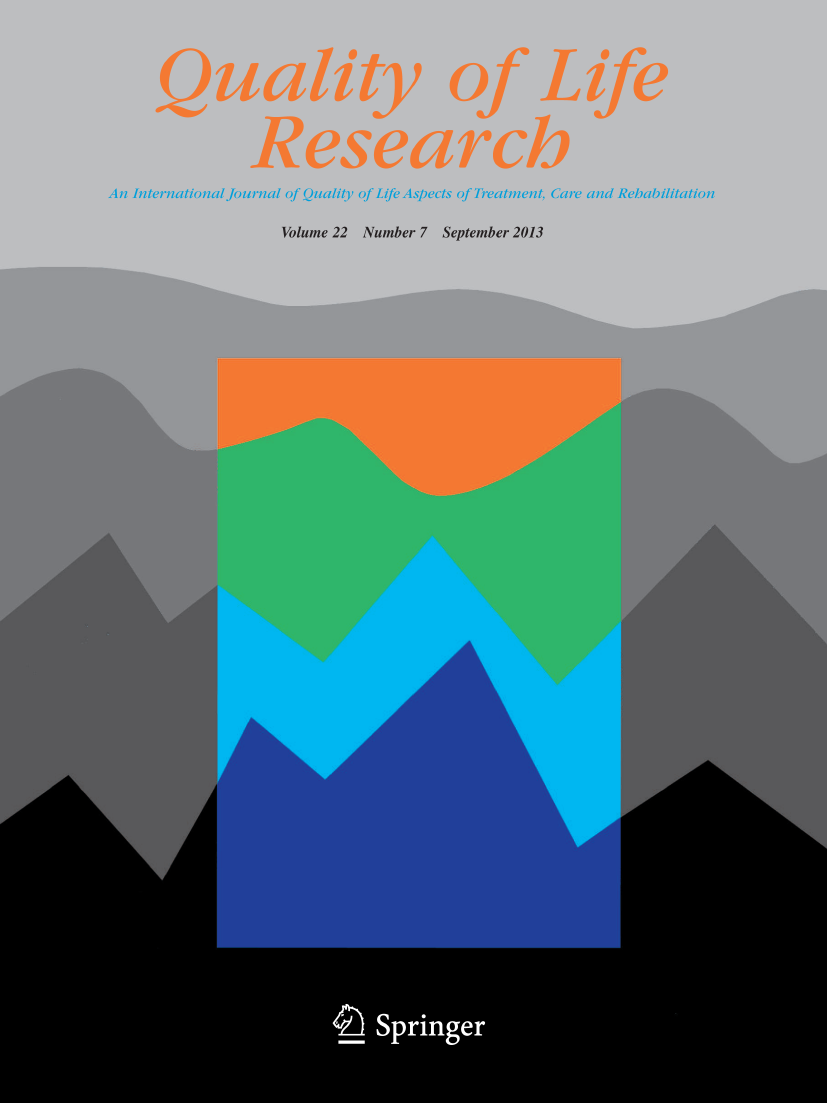From Utility to Meaning: Reframing Health System Evaluation through Multilevel, Predictive and Biographical Models
Published in Healthcare & Nursing, Computational Sciences, and Public Health

Health systems are increasingly called to be equitable, intelligent, and person-centred. Yet the models used to evaluate them remain stubbornly reductionist. In our collaborative research across cardiac rehabilitation, aged care, digital health, and AI-enabled triage, we have consistently found that traditional evaluation tools, particularly utility-based patient-reported outcome measures (PROMs), fail to reflect the multilevel, relational, and lived experience of care. We argue that to meet the needs of diverse populations and complex systems, evaluation must evolve toward biographical, participatory, and predictive models that work across individual, organisational, and policy levels.
From validated PROMs to constrained insight
In our systematic review of utility-based patient-reported outcome measures (PROMs) in cardiac rehabilitation (Bulamu et al., 2024), we identified nine PROMs, with only three [the EuroQol 5-Dimension 5-Level (EQ-5D-5L), 12-Item Short Form Survey (SF-12), and MacNew Heart Disease Health-Related Quality of Life Questionnaire (MacNew)] showing sufficient evidence for responsiveness and hypothesis testing. These findings were limited to German-language versions and populations, restricting generalisability. Moreover, while the tools were mapped to the International Classification of Functioning, Disability and Health (ICF) and the International Consortium for Health Outcomes Measurement (ICHOM) domains for cardiovascular disease, their capacity to reflect social, cultural, or relational dimensions of care was limited. As our results highlighted, PROMs remain indispensable in cost-effectiveness analysis but insufficient for understanding how care unfolds, adapts, or is experienced.
Care is more than an outcome: The CLCT and Care Biography
The Caring Life Course Theory (CLCT) is used to address this, a framework that reconceptualises care through several interrelated constructs, e.g., care capability, care transitions, care networks, and care trajectories (Pinero de Plaza et al., 2024a). In our study of 15 cardiac rehabilitation programs across rural Australia, we applied CLCT to demonstrate how care participation and engagement were shaped more by life transitions and social support than clinical indicators alone. This work calls for an evaluative shift from viewing care as a discrete intervention to understanding it as part of a broader, biographical system.
The concept of Care Biography further supports this shift. Defined and examined in our concept analysis (Tieu et al., 2024), care biography reflects the cumulative life events and interpersonal relationships that shape how individuals experience and engage with care. As a research and practice tool, it helps clinicians and systems understand people not as passive recipients of services but as active agents whose experiences of care are profoundly social and temporal.
Modelling complexity: Fundamental care as a structural system
We advanced this perspective through a pilot structural equation modelling (SEM) study grounded in the Fundamentals of Care Framework (Pinero de Plaza et al., 2025). We used a partial least squares model (cPLS-SEM) to analyse patient-reported experience data across healthcare settings in Spain and Australia. The results revealed that the Context of Care significantly predicted the clinician–patient Relationship, which in turn fully mediated the Integration of Care, highlighting how systemic and relational factors interact to produce person-centred outcomes in diverse healthcare systems.
Importantly, this work operationalises care relationships and shows how fundamental elements of care, long considered intangible, can be statistically modelled and meaningfully interpreted across settings.
From measurement to meaning: PROLIFERATE and PROLIFERATE_AI
To support real-world evaluation and transformation, we developed PROLIFERATE, a multilevel participatory framework that captures stakeholder priorities, perceptions, and behavioural patterns while implementing health innovations (Pinero de Plaza et al., 2023). PROLIFERATE enables mapping readiness for change across stakeholder roles (e.g., policymakers, clinicians, patients), measuring dimensions such as comprehension, emotion, motivation, barriers, and optimisation strategies.
In evaluating digital and AI-based innovations, including the RAPIDx AI clinical decision support tool, we extended this model into PROLIFERATE_AI, a human-centred machine learning-enabled method (Pinero de Plaza et al., 2025b). Our work across 12 Australian emergency departments revealed that user trust, emotional response, and local leadership significantly shaped AI adoption, factors often missed by technical validations. PROLIFERATE_AI allowed us to simulate future implementation patterns based on stakeholder data, demonstrating how predictive modelling can be ethical and practical when grounded in participatory logic.
Responding to complexity and post-truth challenges
These findings speak to the expanded debate about the role of knowledge, complexity, and co-design in health systems reform. In our studies of transdisciplinary collaboration (Lawless et al., 2024; Archibald et al., 2023) and post-truth policy dynamics (Tieu et al., 2023), we showed how scientific knowledge often competes with political and cultural narratives. In this context, overly narrow evaluation methods can distort policy decisions or marginalise community priorities.
We argue that a new evaluative paradigm is needed, one that is:
-
Multilevel, linking individual, organisational, and policy insights
-
Biographical, informed by people’s care histories and networks
-
Predictive, capable of informing future practice through real-time feedback
-
Participatory, co-designed with those affected by interventions
-
Transdisciplinary, integrating care theory, systems science, implementation research, and health informatics
A call for meaningful metrics
If health systems are to become adaptive and person-centred, we must evolve beyond what is easy to measure. Traditional PROMs, while necessary, are insufficient. The next generation of evaluation must honour complexity and care simultaneously. Our work demonstrates that such models are not only conceptually robust but also operational, scalable, and already in use.
As researchers, we call on funders, policymakers, and health leaders to support evaluation methods that reflect real-world conditions of care, which can navigate complexity without erasing it and foreground human experience without sacrificing analytical rigour.
References
Bulamu et al. (2024). Measurement properties of utility-based health-related quality of life measures in cardiac rehabilitation and secondary prevention programs: A systematic review. Quality of Life Research, 33, 2299–2320. https://doi.org/10.1007/s11136-024-03657-5
Pinero de Plaza et al. (2024a). The Caring Life Course Theory: Opening new frontiers in care—A cardiac rehabilitation example. Journal of Advanced Nursing. https://doi.org/10.1111/jan.16312
Tieu et al. (2024). Care biography: A concept analysis. Nursing Philosophy. https://doi.org/10.1111/nup.12489
Pinero de Plaza et al. (2025). Piloting Structural Equation Modeling for Fundamental Care Decision-Making Across Healthcare Settings. Research Square Preprint. https://doi.org/10.21203/rs.3.rs-6365026/v1
Pinero de Plaza et al. (2023). Co-designing, measuring, and optimizing innovations and solutions within complex adaptive health systems: The PROLIFERATE method. Frontiers in Health Services, 3, 1154614. https://doi.org/10.3389/frhs.2023.1154614
Pinero de Plaza et al. (2025b). Human-centred AI for emergency cardiac care: Evaluating RAPIDx AI with PROLIFERATE_AI. International Journal of Medical Informatics, 196, 105810. https://doi.org/10.1016/j.ijmedinf.2025.105810
Lawless et al. (2024). From promise to practice: How health researchers understand and promote transdisciplinary collaboration. Qualitative Health Research, 34(2). https://doi.org/10.1177/10497323241235882
Archibald et al. (2023). How transdisciplinary research teams learn to do knowledge translation. Health Research Policy and Systems, 21, 20. https://doi.org/10.1186/s12961-023-00967-x
Tieu et al. (2023). Wicked problems in a post-truth political economy: A dilemma for knowledge translation. Humanities and Social Sciences Communications, 10, 83. https://doi.org/10.1057/s41599-023-01789-6
Follow the Topic
-
Quality of Life Research

This is an international, multidisciplinary journal of original research, theoretical articles, and methodological reports related to the field of health related quality of life (HRQL), in all the health sciences.
Related Collections
With Collections, you can get published faster and increase your visibility.
Quality of life in people with mental disorders – beyond global scores
The World Health Organization's 65th World Health Assembly stated that the global burden of mental disorders accounts for 25–33% of all disabilities and highlighted the substantial impact on family members and carers. The WHO's "Comprehensive mental health action plan 2013–2030" stresses the lack of adequate health service provision in this area. Research into evaluating the efficacy and effectiveness of interventions and mental health services often focus on measures of symptom severity as key outcomes. But policy agendas as well as patients’ views suggest considering impacts beyond pure symptom load including a broad range of experience and a consideration of a dimension of "recovery". The assessment of health-related quality of life and quality of life ((HR)QoL) and interventions targeting these constructs have been articulated as a way to improve treatment outcomes during mental health service provision.
The purpose of this article collection is to increase the awareness of and reliance on the multidimensional nature of (HR)QoL by moving beyond global (HR)QoL scores, both in research as well as applied (clinical) settings.
For the purposes of this call, we conceptualize people living with "mental disorders" broadly, as for example in line with diagnoses (DSM, ICD), transdiagnostic approaches, or being in treatment that focuses on their remediation.
In this article collection we encourage submissions of research and clinical practice using nuanced approaches to (HR)QoL in people living with mental disorders. We envisage that such papers will increase our understanding of (HR)QoL in diverse settings and samples, which may also prompt the reshaping of interventions and services to target specific (HR)QoL deficits or increase capabilities.
To contribute to this nuanced discussion, submissions should firstly position their research clearly as addressing QOL or HRQL. While authors are invited to position their research in other relevant frameworks, the editors suggest as a reference point the WHO (1994) definition of QoL as “an individual’s perception of their position in life in the context of the culture and value systems in which they live and in relation to their goals, expectations, standards, and concerns”; and the HRQL focus on the impacts of health conditions, their consequences, and treatments on multiple aspects of people’s quality of life, such as for example level of ability, daily functioning, and ability to experience a fulfilling life.
Secondly, many (HR)QoL instruments have been developed as multidimensional tools, offering insights into several related domains at a time. A brief, non-exhaustive list of examples of instruments measuring multiple (HR)QoL dimensions are the WHOQoL (psychological health, physical health, environment, social relationships); the SF-36 (physical functioning, physical role limitations, bodily pain, general health perceptions, energy/vitality, social functioning, emotional role limitations); the MANSA (Life and Health, Living Environment); the MSQoL (physical health, vitality, psychosocial, affective, material satisfaction, spare time). Any paper submitted to the call should use appropriate methods to test claims about the multidimensional nature of their approach, at least as supporting or sensitivity analyses.
Eligible manuscripts may focus on:
- investigating the potential causal impact of interventions or service provision models on particular dimensions of (HR)QoL; such submissions may use confirmatory or exploratory approaches and use data from controlled or naturalistic settings;
- the understanding of the nature, appropriateness, or other aspects of the meaning and use of these dimensions in, or ideally with, the target population, using in-depth explorations through qualitative inquiries;
- examining different factors (i.e., sociodemographic, psychosocial, clinical) that may act as longitudinal determinants of, or display associations with, (HR)QoL dimensions in people with mental disorders; especially encouraged are explorations relating to social determinants, inequities and inequalities that matter in the particular research and service contexts;
- performing investigations of the viability of domain scores with contemporary psychometric methods (e.g., via confirmatory bifactor analyses or other models that allow to gauge the differential contribution of domains of an instrument);
- explaining the use of domain information in practice contexts by focusing the interventions only on specific domains where patients report major difficulties (i.e. social relationships; employment);
- performing investigations and develop methodological proposals on how to research relationships between measures of the severity of mental disorder (symptoms) and (HR)QoL, with often overlapping item content in measures of both constructs (DOI: 10.1007/s40273-020-00972-w);
- comparing QoL dimensions across people with different diagnoses of mental illness (i.e., schizophrenia-spectrum, mood, anxiety disorders, etc.);
- relating QoL dimensions to dimensional measures of mental illness (e.g., HiTOP or network approaches;
- comparing QoL dimensions across people with mental disorders that may attend different service settings, or may be at different time points of their condition course (i.e. first-episode, chronic patients; inpatients/outpatients, etc.);
- presenting the findings of systematic reviews/meta-analyses of the available evidence regarding the QoL dimension levels, and/or associated factors in people with mental disorders.
Manuscripts may use original data or provide evidence based on secondary analyses. Submissions should employ reporting guidelines relevant to the type of study and applied methodology to transparently and completely report their research. The standard word limit of 4,000 words applies, but it is common for submissions to Quality of Life Research to contain substantial electronic supplements or link out to repository resources to provide all necessary information to understand and engage with the reported research. The use of (pre-)registrations and open science techniques is strongly encouraged to increase transparency and the potential for re-use.
Participation in the article collection:
Submissions of full papers in line with QLR's submission guidelines will be possible from 01.11.2024 in our online submission portal. There is currently no definite end date and we envisage the collection to be open for at least a year.
A submission of a letter of intent is not necessary. If helpful for authors, they are invited to submit a letter of intent for pre-evaluation during this period. A letter should contain a draft title, contact information and institution for all co-authors, and a structured abstract (500 word maximum) that provides detailed information about the manuscript to support the evaluation. Please email the letter to Dr. Brittany Lapin (lapinb@ccf.org) and Dr. Eleni Petkari (epetkari@uma.es) These letters will be handled on an ongoing basis and feedback (invitation to submit the full paper vs. rejection) will be provided within two weeks.
Papers will be published online as part of the collection if accepted after a single-blind peer-review process. Published articles will be allocated to issues on an ongoing basis as soon as possible thereafter.
Publishing Model: Hybrid
Deadline: Jun 30, 2026
Enhancing Population Health Assessment: Key Papers from the EQ-DAPHNIE Project
Publishing Model: Hybrid
Deadline: Ongoing






Please sign in or register for FREE
If you are a registered user on Research Communities by Springer Nature, please sign in